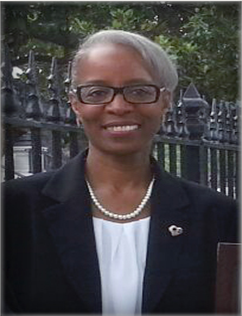By Dorothy Reed, Chair, Community Cancer Action Board
My experience as a breast cancer advocate motivated me to host a focus group on health disparities, because statistics have not improved. Sister2Sister’s (S2S) Memory Book with 39 deceased members, reminds me of why S2S was formed:to save lives by educating Black women and letting them know that they did not have to die from breast cancer. Well, 20 years later “The breast cancer death rate during 2013 through 2017 was 40% higher in Black women than in white women” (American Cancer Society). A change is needed and if we begin to dismantle health disparities, address distrust and fear this may increase Black participation in clinical trials and lead to improvements in cancer mortality.
“Of all the forms of inequality, injustice in health care is the most shocking and inhumane” -Rev. Dr. Martin Luther King Jr.
Methodology

The Focus Group “Addressing Health Disparities in Minority Communities” was held with the Somerset community to find out why there is so much distrust and fear between minorities and the Health Care system. How can this mistrust and fear be fixed and if so where do we begin? If we can address these two factors, it
The group, which consisted of doctors, a home visiting nurse, a teacher and breast cancer survivors, agreed mistrust and fear is justifiable, as we all know the history. One member pointed out “However, there are many problems that cause mistrust and fear and the solution will be multi-factorial and not easy to solve. Economic stability, education, social and community context, health care and neighborhood environment, all play a role”.
The group discussed how health care systems can begin with education, informing the community of new procedures for trials and can acknowledge that history was wrong and admit that minorities were mistreated and their lives did not matter. However, minority communities are not that willing to forget the past and move on. “People were recently demonstrating in the streets over George Floyd and Breonna Taylor. The scars to minority people run very deep. As a people they have had enough poor treatment. Education is one thing, but if you are not trustworthy or relatable there is no need for further discussion.”
Conclusion
Increase the representation to look like the community – scientist, doctors, navigators, community health care workers, need people that are compassionate and able to communicate in a way to make a person feel comfortable in addition to affordable health insurance, free screening programs, etc.
Do not ask people to forget, ask them to remember. Be mindful, ask questions, and be slow to disagree, ponder, listen – but let us keep moving forward wisely. This will take time.

Contact
For more information on this Focus Group please contact Dorothy Reed at dorothyreed5@aol.com
Reference
Report: Breast Cancer Death Rates Down 40% Since 1989

